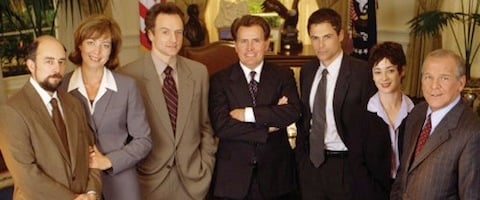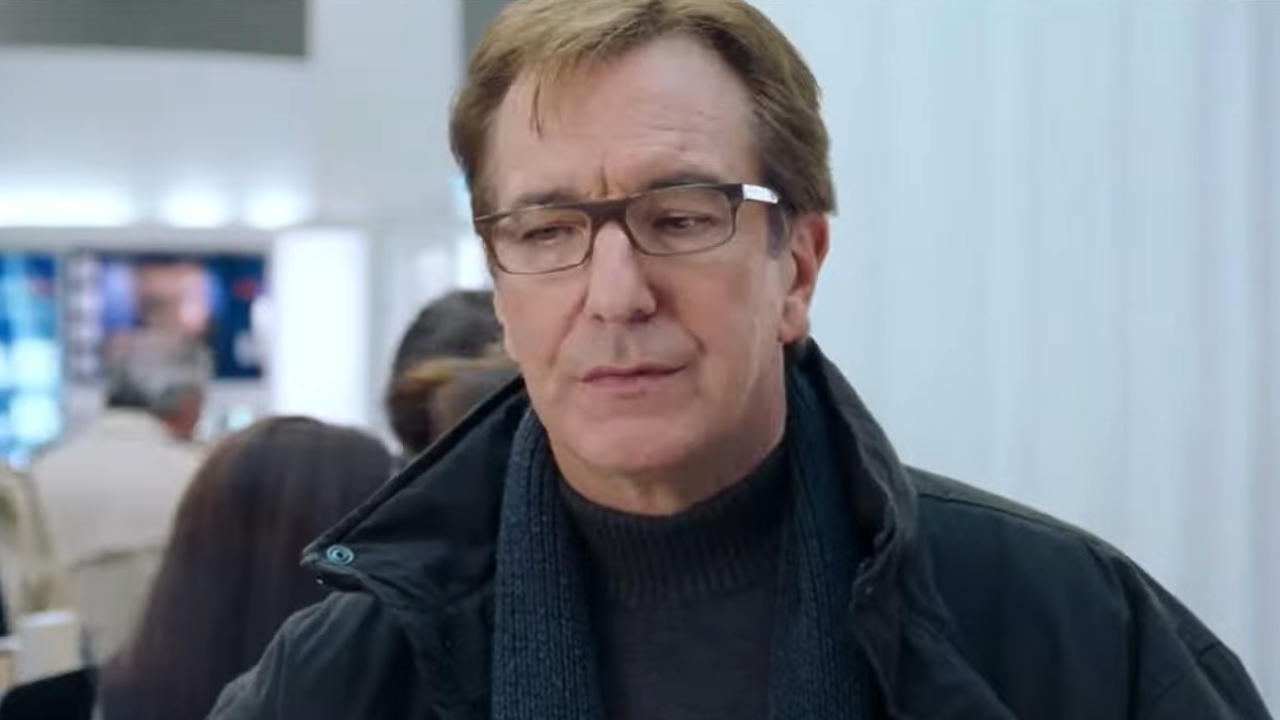The West Wing's Best Episode: 17 People

Once again, we're tackling another show in TV Blend's weekly series "___'s Best Episode." Each week a different writer will pick out a different episode of a TV show and argue why it is definitively, absolutely the best thing the show ever did. Arguments will be started, tears may be shed, but we're here to start some conversations and make some arguments for really, really good TV. This week John takes on The West Wing by making a case for “17 People” Read below, argue with us in the comments.
The West Wing holds a special place in my heart. Season one hit my senior year of high school, and season seven aired during my last year of grad school. I'm not sure any other show of the 2000s quite captures the way pop culture and the American political climate interacted, and I found myself, in hindsight, finding fascinating parallels between what happened at points in the series against what was happening in the real world at the same time. It left me with a lot to think about, and a lot of choices as I dove into the "best episode" options.
And of course, this is the work of fiction in which Aaron Sorkin both found the true sparkle and sheen of his voice and fell from grace a little bit, ousted from his own writers' room at the end of season four. The show never really recovered, and although there are fine moments in seasons five through seven (most notably S5's "The Supremes," featuring Glenn Close in one of the most awesome feminist commentaries on politics and justice ever committed to television), I knew that the plum episode was going to come from the Sorkin years.
And this brings us...to "17 People," TWW's best episode. It was hard to rate it ahead of the fantastic sniper drama and multiple plate-spinning plot of "What Kind of Day Has It Been" (fun fact: every Sorkin show's first season finale is titled this) and the death-and-rebirth, "will he or won't he run again?" high-wire act of "Two Cathedrals." But I had to give it up to Season 2, Episode 18, "17 People," penned by Sorkin himself and directed by Alex Graves. It hits all the right marks that became TWW's trademark.
A quick synopsis: The big recurring arc of the first two seasons involved President Jed Bartlet's diagnosis of a treatable and relatively mild form of multiple sclerosis, and his choice to hide this fact from the American public throughout the election and much of his first term. The symptoms of his condition become more noticable, and Toby's suspicions of the president's illness are confirmed. In a plaintive, fiery and damning argument, Toby speaks to the American public's right to know about the health of their chief executive, and the possible criminal and conspiratorial nature of this huge secret. There's also a couple of b-plots, including a foreign terrorist caught at the border with explosives, and the security implications therein, some crackling dialogue between Sam and Josh about punching up an upcoming speech at the White House correspondents' dinner, and Josh and Donna quibbling about their "anniversary"--her official start date--in what might have been the most obvious acknowledgement of their sexual tension to date.
There's a few reasons that this episode rises to the top. The first is style--this episode works on words alone. It's limited in its physical scope, down to the sets and numbers of actors in each scene. And there's a reason for that--NBC was cracking down on The West Wing's inflating budget, and Sorkin had to craft an episode within limited financial constraints. Limits can be great for focus and creativity in a writer; this episode reads and works like a play, with a number of two-person office scenes driving the action forward. And Alex Graves' direction is intense and diligent with respect to the script without being flashy; the cold open of the show is a series of quick chats between Toby and Leo that ratchet up the subtext and intensity of Toby's concerns against what Leo knows, and it's shot in increasingly tightly-framed shots of both players. The West Wing's best asset was always Sorkin's words, and this episode is constructed in such a way when the words, in their purest form, drive every moment of this hour of television forward.
The second reason is its place in the mythology. There's only so many assassination attempts that a show can run to before we get a little tired, and the gunmen plot at the end of season one already had run to this well, and taken it off the table--you can't really physically threaten the president and expect the same sort of sense of dread a similar plot would evoke on, say, Grey's Anatomy. But you can threaten his reputation, and the livelihood of his administration, and get us to hold our breath in anticipation and dread--and that's what this episode does.
Your Daily Blend of Entertainment News
Bartlet's MS had been a long-running throughline with a subtext of its reveal being very bad news--but Toby was the first character to receive the news and actually battle back against the choices of his colleagues, and make it clear exactly WHY this revelation is very bad news. His righteous anger at his friends and coworkers against his genuine concern for what this news means for his friends is smoldering and endearing; Richard Schiff earned his paycheck and then some in this episode. It's stories like this that make me so sad Toby was written out of the show in a ridiculous "betrayal" plot in the post-Sorkin seasons; Toby was The West Wing's conscience, and this is the episode where that role became clear.
Also of note, regarding the mythology--the advancement of Josh and Donna's relationship was beautifully handled in this episode. And there’s this melt-worthy quote, from the end of a conversation about Donna's breaking up with an old boyfriend after she was in a car accident, and he stopped for a beer before heading to the ER to see her:
JOSH: I'm just saying that if you were in an accident, I wouldn't stop for a beer.
DONNA: If you were in an accident I wouldn't stop for red lights.
And the final reason is how this episode does, in fact, change the game of The West Wing without actually altering what we love about the show; at the end of the episode, Toby enters the speechwriters' room to work on the correspondents' dinner speech, and he takes a deep breath and walks into a world that doesn't know. He's us, in this moment; all of a sudden this is a world where the characters can be divided down a line of ignorance and dangerous knowledge, and the intrigue of that divide added a layer of depth and suspense to The West Wing that carried all the way through the next two seasons. This was a real show-changer, without being at all hyperbolic. And it opened the door for us to see our idealized, fictional White House residents as tarnished, while also still being worthy of our respect and idealism. In thinking about it, a lot of the early tensions I loved about Mad Men have a predecessor in what this new plot added to The West Wing; "17 People" transformed The West Wing from a show about high-stakes leadership into a story of how information can, and does, carry power, and the ability to wound and kill.
I miss this show. I miss these people. It was a lot of fun to travel back through these stories and have them back for a little bit.
